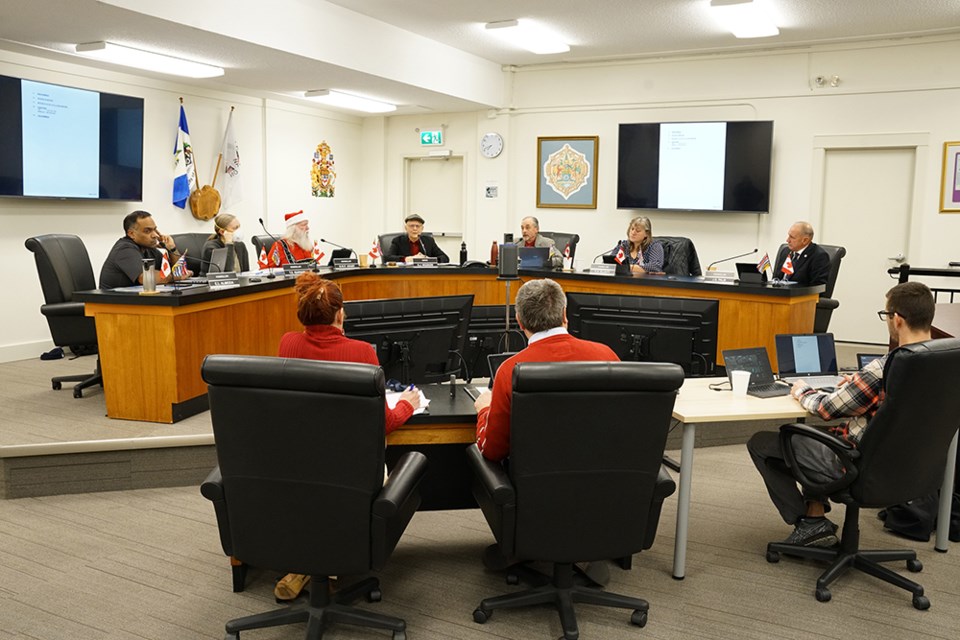Mayor Ron Woznow’s effort to have tiny houses placed on a City of Powell River committee of the whole agenda in January has been postponed.
At the December 15 city council meeting, Woznow proposed a motion to have the city’s planning department prepare a plan that would expedite the approval of tiny homes and present it to city council on January 17, at the city’s next committee of the whole meeting.
Woznow said on December 13, the planning department referenced the regional housing study that stated Powell River’s housing needs are in the range of 581 to 1,251 by April 2027.
“In a little more than four years, we could need upwards of 1,000 new housing units,” said Woznow. “The premier of BC recognizes this is widespread around the province and has made housing a priority and wants cities to cooperate in meeting this demand.
“The premier is willing to do whatever is required, including modifying approval processes to allow new housing units. The key is to adopt a can-do attitude.”
Woznow said he had been advised that there are about 10 residents of an apartment block who will lose their accommodations and will find it very difficult, if not impossible, to find a place to live. He said that the city can learn from other cities such as Kelowna, which looked at how tiny homes can provide a complement to carriage houses to address housing needs with a streamlined approval process.
“Tiny homes can provide new accommodations in a fraction of the time needed to build carriage houses, or a large affordable housing project that is being considered for city land on Barnet Street,” said Woznow.
He added that Kelowna’s director of planning development said it has proven to be a very effective way to increase housing supply.
Woznow had placed the matter on the council agenda as new business on the evening of the council meeting, but councillor George Doubt said he would have preferred for the initiative to have been on the published agenda four or five days before the meeting with a written motion, so council had an opportunity to think about it, and then have a full discussion at a committee of the whole meeting.
Doubt said tiny homes are a solution, but they are not a magic bullet to solve every problem.
“How they get used depends on the bylaws and the regulations that are in place,” said Doubt. “I’ve seen a variety of different applications of tiny houses so I’m not going to say they are the cat’s pyjamas, and we should go all-out on that without having a careful, considered plan, and the approval of the community before we do that.”
Doubt said he is paying attention to a couple of tiny home developments. He said he has seen a development being proposed for Port Alberni, that would allow for 20 or 25 tiny homes, which are one-room buildings, on what looks like an R1-sized lot in the middle of the city. He said it is going to replace a collection of abandoned motorhomes, old RVs and other things people are living in.
Doubt said he is in favour of having the planning staff look at tiny homes and what the appropriate bylaws would be.
Proposed amendment
Councillor Cindy Elliott said she shared concerns about housing and options that will work within the community and is excited trying to move forward. She said there are other alternatives to tiny homes that may be more easily implemented with a faster turnaround.
“I’m wondering if we should be asking the planning department to come back with some options that could include tiny homes, but perhaps, RV pads in people’s yards, or the possibility of mobile home parks,” said Elliott. “I would like to know some of the alternatives as well – not just tiny homes.”
Elliott proposed an amendment to Woznow’s motion to include more than just tiny homes.
Councillor Earl Almeida said shipping containers can be converted to housing and that he believes this has been done on the east side of Vancouver.
The amended motion carried.
Councillor Trina Isakson then suggested another amendment about receiving the information for city council’s strategic planning session next year.
Interim chief executive officer Chris Jackson said council could also postpone this motion until after the strategic planning session.
“What that would do is hit the pause button until strategic planning and then it would come back in February,” said Jackson.
Isakson then said she was not going to amend the motion.
Doubt made a motion to postpone consideration of the tiny homes motion until immediately after the strategic planning process.
“Finding an immediate solution is not something we can do in the next four or five weeks,” added Doubt.
The motion to postpone carried, with councillors Almeida, Isakson, Doubt and Rob Southcott in favour, and Woznow, Elliott and councillor Jim Palm opposed.



